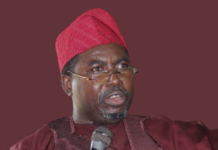Medical Tourism: Nigerians spent $11b on medical services abroad in the past 10years.
According to a review of the Central Bank’s balance of payment data, Nigerians have spent the total sum of $11.01 billion on health-related services abroad.
The data also shows a systematic decline in the proportion of allocations to the health sector over the past 10 years, as it declined from 5.58% in 2011 and 6.03% in 2012 to 4.05% in 2021.
Quality health is a fundamental right of all Nigerian citizens and a basic necessity for survival and productivity. This makes the health sector a crucial component of the economy; one that ideally, should attract massive investment. Unfortunately, Nigeria’s health sector bleeds from multiple besetting problems, one of which is underfunding. Averagely, the sector has received 4.72% of the country’s fiscal budget in the last 10 years.
According to the data, Nigerians spent $11.01 billion on health expenses abroad between 2011 and the first quarter of 2021, recording the highest in 2019 with $2.56 billion foreign health expenses, and the least in 2016 at $17 million.
Reports from the Nigerian Sovereign Investment Authority (NSIA) reveals that Nigerians spend an average of $1 billion annually on medical tourism for a range of healthcare needs. 60% is reported to be across four key specialities: oncology, orthopaedics, nephrology, and cardiology.
Aslo, a PwC survey of Nigerians found that more than 90% of respondents associated advanced healthcare delivered in Nigeria with “low quality.” Each new report of poor clinical care has reinforced the belief among the population that Nigerian healthcare is substandard and should be avoided whenever an alternative can be found.
In terms of contribution to economic growth, Nigeria’s health sector, valued at N484.76 billion in real terms as of 2020, only accounted for a meagre 0.69% of the economy.
A survey by the Global Health Workforce Alliance of the World Health Organisation, Nigeria’s healthcare service sector is affected by a number of factors, including:
Lack of public and private sector coordination;
Commercial pressures in the private sector that lead to poor quality work;
Work environments that contribute to low motivation, less-than-optimal productivity, high attrition – especially in rural areas; and
Lack of planning based on staffing projection needs, resulting in an overproduction of some categories of health workers at the expense of others.
While Nigeria’s healthcare system continues to record massive drawbacks, countless Nigerian citizens are excelling in the medical profession abroad. Two cases in point are Nigerian-born medical doctor, Professor Iyalla Elvis Peterside who was named as one of America’s best physicians for the year 2020 by the U.S National Consumer Advisory Board.
Similarly, Dr Onyema Ogbuagu a U.S-based and Nigerian born doctor was one of the scientists who discovered the Pfizer vaccine for the covid-19 disease.




